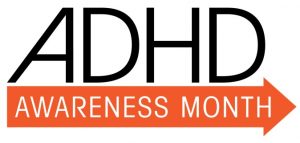Attention Deficit Hyperactivity Disorder (ADHD) is a chronic condition that is characterized by symptoms of inattention, hyperactivity and/or impulsivity. In addition to these symptoms, individuals with ADHD might suffer from anxiety, chronic lateness and forgetfulness, poor organizational skills, low self-esteem and problems in work/school. These problems can become so persistent and difficult to manage that they interfere in all aspects of the individual’s life including home, social, work and academic (Clark, 2017).
According to the CDC, 11% of all children 4-17 years old across the United States have ADHD and of those children, about two-thirds have it when they are adults as well. ADHD is up to three times more common in boys than girls. For an adolescent or an adult to be diagnosed later in life, the symptoms of ADHD need to have been present prior to 12 years old. These symptoms are normally often overlooked as emotional or disciplinary problems or missed completely if the individual was quieter as a child. Possible treatment options include medication, talk therapy, education and skill-building.
One of the more important skills that individuals with ADHD need to learn is how to stay organized. Parents can help kids stay organized by keeping the same routine and schedule every day, from wake-up to bed-time, helping them learn how to organize everyday items, using homework and notebook organizers to help them keep track of their school work and being clear and consistent with rules. For adults, individuals can learn how to organize their life by keeping routines, making lists for different tasks and activities, using a calendar for scheduling events, using reminder notes, assigning a special place for important items, and breaking down large tasks into more manageable, smaller steps (National Institute of Mental Health, 2016).
Although living with ADHD can be challenging, with identification and proper treatment, individuals can go on to live very successful and rewarding lives.
For more information please visit these websites:
https://www.webmd.com/add-adhd/guide/diagnosing-adhd#1
https://www.cdc.gov/ncbddd/adhd/data.html
https://www.nimh.nih.gov/health/topics/attention-deficit-hyperactivity-disorder-adhd/index.shtml
Angela Anzevino
Business Systems
Harrisonbug-Rockingham Community Services Board

